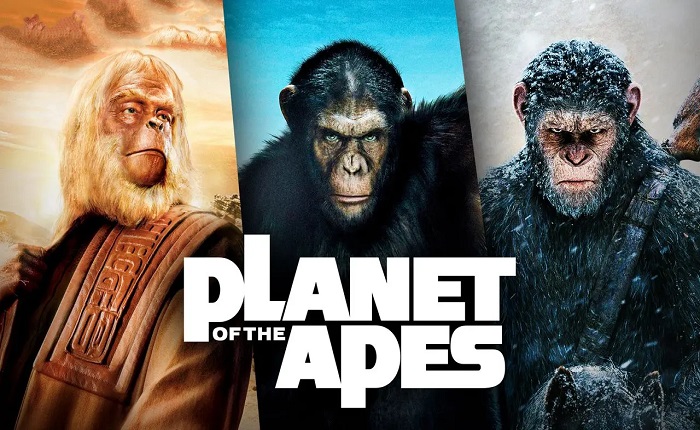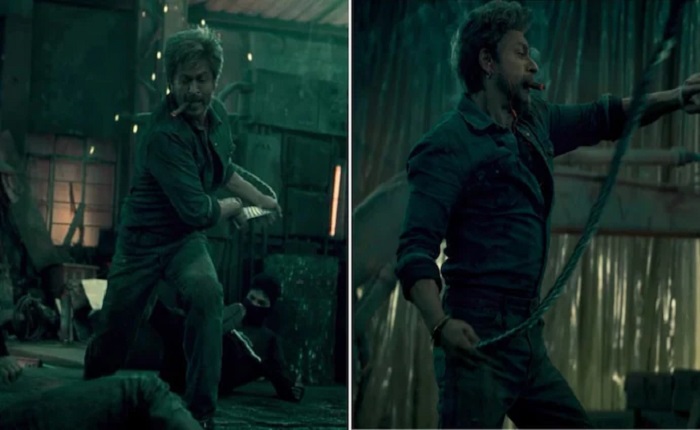Planet of the Apes Movies in Order: A Complete Guide to the Iconic Sci-Fi Franchise

Introduction
The Planet of the Apes movies have captivated audiences for decades with their unique blend of science fiction, social commentary, and thrilling action. Spanning multiple generations, these films have undergone several reboots and continuations, each bringing its own flavor to the franchise. If you’re a fan or new to the saga, understanding the Planet of the Apes movies in order is essential for appreciating the full arc of the story.
Whether you’re starting with the classic Planet of the Apes movies or diving into the newer trilogy, watching the Planet of the Apes movies in order provides a deeper understanding of the series’ complex themes and evolving storyline. Let’s break down each film and its place within the franchise.
The Original Planet of the Apes (1968)
The journey began in 1968 with the release of Planet of the Apes, directed by Franklin J. Schaffner and based on Pierre Boulle’s 1963 novel, La Planète des Singes. This film kicked off the Planet of the Apes movies in order and introduced the iconic character of Colonel George Taylor, played by Charlton Heston. Set in a dystopian future where intelligent apes dominate humans, this movie’s shocking ending remains one of the most memorable in cinema history.
Watching the first Planet of the Apes movie in order sets the tone for the philosophical and societal questions that the rest of the films would explore. Its exploration of power dynamics, race relations, and human nature resonated deeply with 1960s audiences and continues to be relevant today.
Beneath the Planet of the Apes (1970)
The second entry in the Planet of the Apes movies in order is Beneath the Planet of the Apes, released in 1970. This sequel picks up where the original left off, with astronaut Brent (James Franciscus) sent to find Taylor but instead discovering a mysterious underground civilization of mutated humans. While Beneath the Planet of the Apes didn’t quite reach the critical acclaim of its predecessor, it still played an important role in expanding the world of the Planet of the Apes movies in order.
For fans looking to understand the full arc of the story, Beneath the Planet of the Apes is essential viewing. It delves into the apocalyptic elements of the series, giving viewers a deeper sense of the devastation caused by human warfare.
Escape from the Planet of the Apes (1971)
Next in the Planet of the Apes movies in order is Escape from the Planet of the Apes, released in 1971. This third installment takes a more light-hearted approach, with apes Cornelius (Roddy McDowall) and Zira (Kim Hunter) traveling back in time to 20th-century Earth. The film shifts the tone of the franchise but continues to explore its core themes of societal oppression and fear of the unknown.
Escape from the Planet of the Apes stands out in the Planet of the Apes movies in order for its humor and thought-provoking look at human-animal dynamics. It also sets the stage for the rest of the series by creating a paradox where events from the future influence the past.
Conquest of the Planet of the Apes (1972)
Conquest of the Planet of the Apes is the fourth movie in the Planet of the Apes movies in order and was released in 1972. This film takes a darker tone as it focuses on the rise of Caesar, the son of Cornelius and Zira, who leads a rebellion against human oppression. Set in a future where apes are enslaved by humans, Conquest of the Planet of the Apes directly tackles themes of revolution, freedom, and social injustice.
For those watching the Planet of the Apes movies in order, this film is a critical turning point. It marks the beginning of the apes’ rise to power, setting up the conflict that would define the later films.
Battle for the Planet of the Apes (1973)
The fifth movie in the Planet of the Apes movies in order is Battle for the Planet of the Apes, released in 1973. This final entry in the original series follows Caesar as he attempts to establish peace between humans and apes in a post-apocalyptic world. Battle for the Planet of the Apes closes the loop on the narrative established in earlier films, although it did not receive the same acclaim as some of its predecessors.
As the last of the original Planet of the Apes movies in order, Battle for the Planet of the Apes offers a somewhat optimistic conclusion, with a message of coexistence and mutual understanding. It’s a fitting end to the saga’s exploration of power, rebellion, and hope.
Planet of the Apes (2001)
The 2001 Planet of the Apes remake, directed by Tim Burton, rebooted the franchise with a fresh take. While it doesn’t follow the timeline of the previous Planet of the Apes movies in order, it does offer a standalone retelling of the original story. Starring Mark Wahlberg as astronaut Leo Davidson, the film was praised for its visual effects but criticized for its confusing plot and controversial ending.
For those watching the Planet of the Apes movies in order, the 2001 remake stands apart as a modern reimagining that attempted to revive the franchise for a new generation. Although it wasn’t as successful as hoped, it paved the way for future reboots.
Rise of the Planet of the Apes (2011)
In 2011, the Planet of the Apes franchise was rebooted once again with Rise of the Planet of the Apes, directed by Rupert Wyatt. This film is the first in the modern trilogy and provides an origin story for Caesar, the ape who leads the rebellion against humans. Rise of the Planet of the Apes uses cutting-edge motion-capture technology to bring the apes to life, with Andy Serkis delivering a critically acclaimed performance as Caesar.
Rise of the Planet of the Apes is a must-watch for anyone interested in understanding the modern Planet of the Apes movies in order. It explores themes of genetic engineering, animal rights, and the consequences of human hubris, making it a standout in the series.
Dawn of the Planet of the Apes (2014)
Following the success of Rise of the Planet of the Apes, the franchise continued in 2014 with Dawn of the Planet of the Apes, directed by Matt Reeves. This second film in the reboot trilogy takes place ten years after the events of Rise, as a pandemic has wiped out much of humanity and the apes, led by Caesar, have established their own society. The film delves into the inevitable conflict between humans and apes, as both sides struggle for survival.
Watching Dawn of the Planet of the Apes in order is essential for understanding the progression of Caesar’s character and the deepening divide between species. The film also emphasizes the moral complexity of both humans and apes.
War for the Planet of the Apes (2017)
The final film in the modern trilogy and the most recent addition to the Planet of the Apes movies in order is War for the Planet of the Apes (2017). Directed by Matt Reeves, this film concludes Caesar’s journey as he leads his people in a final, desperate battle against human forces. The film explores themes of vengeance, sacrifice, and leadership, delivering an emotional and visually stunning conclusion to the rebooted series.
As the culmination of the modern Planet of the Apes movies in order, War for the Planet of the Apes provides a satisfying conclusion to Caesar’s story, while leaving room for future installments or spin-offs.
Watching the Planet of the Apes Movies in Chronological Order
If you want to experience the full narrative arc of the Planet of the Apes movies in order, it’s important to consider watching them chronologically by the story’s timeline, rather than by release date. Here’s how you can watch the Planet of the Apes movies in chronological order:
- Rise of the Planet of the Apes (2011)
- Dawn of the Planet of the Apes (2014)
- War for the Planet of the Apes (2017)
- Planet of the Apes (1968)
- Beneath the Planet of the Apes (1970)
- Escape from the Planet of the Apes (1971)
- Conquest of the Planet of the Apes (1972)
- Battle for the Planet of the Apes (1973)
Watching the Planet of the Apes movies in chronological order allows you to follow the evolution of the apes’ society from its origins to its eventual domination over humanity.
The Impact of Planet of the Apes on Sci-Fi Cinema
The Planet of the Apes movies in order have had a profound impact on the science fiction genre. The original 1968 film set new standards for makeup and prosthetics, earning an honorary Oscar. Over the decades, the franchise has explored complex themes such as the abuse of power, racism, and environmental destruction. By watching the Planet of the Apes movies in order, you can trace how these issues have evolved alongside the changing social and political landscape.
Cultural Significance of Planet of the Apes
The Planet of the Apes movies in order have not only influenced cinema but also left a lasting mark on popular culture. From iconic lines like “Get your stinking paws off me, you damn dirty ape!” to the unforgettable image of the Statue of Liberty in ruins, the Planet of the Apes movies have permeated various forms of media, including television, comics, and video games. The themes explored in the Planet of the Apes movies in order continue to resonate with audiences today, making the franchise a timeless reflection of societal fears and hopes.
Conclusion
The Planet of the Apes movies in order offer a fascinating exploration of human nature, power, and survival. Whether you’re watching the original series or the modern reboots, each film in the Planet of the Apes franchise contributes to a rich, interconnected narrative that spans decades. Understanding the Planet of the Apes movies in order allows viewers to fully appreciate the complexities of this iconic sci-fi saga, making it one of the most influential franchises in cinematic history.
FAQs
1. In what order should I watch the Planet of the Apes movies?
You can watch the Planet of the Apes movies in order of release or in chronological order. The chronological order begins with the reboot trilogy, followed by the original series.
2. Are the Planet of the Apes movies connected?
Yes, all the Planet of the Apes movies in order are connected, with the reboot trilogy serving as a prequel to the original series.
3. Is Planet of the Apes 2001 part of the main series?
No, the 2001 Planet of the Apes film is a standalone remake and not part of the main continuity when watching the Planet of the Apes movies in order.
4. What is the best Planet of the Apes movie?
Opinions vary, but many fans consider Rise of the Planet of the Apes (2011) and the original Planet of the Apes (1968) as standout films in the franchise.
5. Will there be more Planet of the Apes movies?
As of now, there are no confirmed new films, but the success of the reboot trilogy suggests there may be future installments in the Planet of the Apes series.





